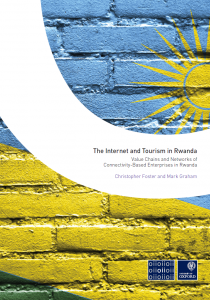Whilst innovation is frequently associated with disruptive activities of entrepreneurs and firms, in the last few years we have seen a growing interest in how innovation can be ‘inclusive’, with a particular focus on innovations in developing countries.
We’re beginning to build a picture about ‘inclusive innovation: Research on farmers and informal workers shows that local innovation is essential for to livelihoods (see images). We’ve also seen the growth of ICT as a viable technology in remote parts of the world, with an expansion of ICT innovations in areas like mobile money and micro-insurance for the poor. More recently we’ve seen the launch of the new global sustainable development goals (SDGs) which place inclusive innovation as central to supporting the worlds biggest social problems.

Examples of local innovation in Kenya: A locally-made fodder cutter (l); an improvised welding device (r).
Images taken from Making Do by Steve Daniels (cc-by-sa 3.0)
What we don’t know much about is the policy that supports this ‘inclusive innovation’. What can governments do to encourage the emergence and growth of inclusive innovation? In a new working paper published by myself and Richard Heeks we look to answer this question. The paper is inspired by earlier work we did on the mobile phone sector in Kenya, which revealed that policy was integral in successfully pushing expansion to low income groups. In this paper we analyse inclusive innovation in a wider set of sectors to build more general advice for policy makers.



